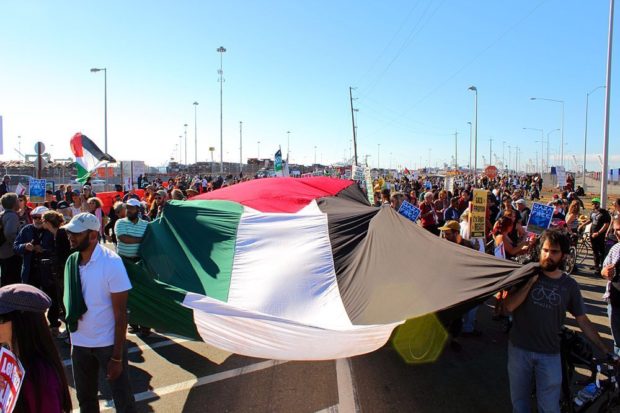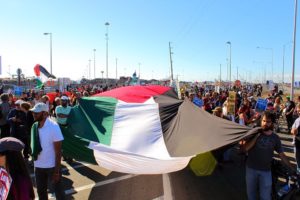
By Gerry Bill

Relative to the deplorable situation in Israel/Palestine, which has seen the loss of thousands of lives just in the current phase of the ongoing struggle, below are a few thoughts on the subject.
First, let us recognize that context is the source of all meaning and that the current struggle is occurring in the context of an occupation. Let us be clear—occupation under international law does not require “boots on the ground.” It refers to the effective control of a region and its people by a foreign power—in this case, Israel exercising control over Palestinians in Gaza and the West Bank. Perhaps there is no disagreement on this point. Still, it is an important starting point.
Much of Palestinian behavior in recent days only makes sense when seen in the context of resistance to an occupation. We could argue about whether the tactics being employed are good or bad, effective or ineffective, but they do have to be viewed as acts of resistance against the occupation.
Obama and Kerry are fond of saying that Israel has a right to defend itself. Let us try to be evenhanded about this and apply such principles equally to all the parties. Suppose we agree that all peoples—including the Palestinians—have a right to defend themselves. Let us also agree, then, that the right to self-defense does not include the right, by either side, to commit war crimes.
War crimes should be called out, investigated by competent international investigators and the perpetrators prosecuted before the International Criminal Court. There may be grounds to investigate both sides for possible war crimes. Unfortunately, the United States routinely blocks attempts to investigate Israel, which can lead to the inequity of only one side being subject to investigations. That needs to change.
Who knows what such investigations might find? The killing of any human being, Israeli or Palestinian, is just plain wrong, in my way of thinking. The loss of one human life is bad enough, but large-scale organized killing is in my book many times worse. The current hostilities in Israel/Palestine have led to a huge disproportion in the numbers of deaths between the two sides, especially when it comes to civilians and children.
As I write these words (Aug. 15), the United Nations reports that the death toll from the Gaza action stands at around 2,000 Palestinians killed, 75% of them civilians, 23% of them children. Israeli deaths stand at 67, 4% of them civilians, zero percent children. Apparently, the Palestinians are pretty effective when targeting soldiers but pretty ineffective at targeting civilians and children. We could quibble about the exact numbers, but any competent international investigation is likely to find similar results, with a high percentage of civilians and children killed among the Palestinian casualties.
What are the possibilities for a long-term solution? Some raise the question of what to do about borders. That concern presumes we are headed toward a two-state solution. I am afraid that the Israeli settlements in the West Bank are making a two-state solution less and less feasible. We may have already passed the point of no return on that one.
However, if things were to move in the direction of two states, I can think of only one way to handle the border and security issues. There would have to be a strong international peacekeeping presence on both sides of the border that guaranteed full freedom of travel and trade for Palestinians, and that at the same time guaranteed that there would be no more attacks on Israel from Palestine and no more attacks on Palestine from Israel. In that scenario, the Israeli occupation would have to come to an end, eliminating also any reason for acts of resistance against the occupation by the Palestinians.
I realize that this alternative has been proposed before and that it has always been rejected by Israel with the full support of its U.S. ally. It is possible, though, that by now the situation has changed enough that something like this could happen. Of course, the Palestinians would have to agree to it as well, but I believe they would agree to it if it meant freedom from Israeli occupation and control over their lives.
If a two-state solution is no longer feasible, serious thought should be given to how to configure Israel-Palestine as one state. If it were to have any claim at all on being a democratic state, it would have to grant full citizenship to everyone, regardless of religion or ethnic origin, regardless of political beliefs, etc. There can be no second-class citizens in such a state. This would mean, of course, that Israel would have to be constituted as a secular state, not as a Jewish theocracy. If citizens are to be treated differently based on their ethnicity, religion or other beliefs, it makes a total sham of any pretense of democracy.
People would have to be able to live freely anywhere within the borders of the unitary state—no Bantustans. There would also have to be equality when it comes to immigration rules. If Jews are free to emigrate from other lands, equity would require that Palestinian refugees in the camps in surrounding countries should have that right as well. Of course, implementing all of this might require some strong international guarantees, but I believe neither side would trust the other side to get it right in the absence of those guarantees.
My hope is that no one will advocate for a solution that is not evenhanded, one that does not apply the same rules to all sides, or one that ends up putting one group in a privileged position over the other.
*****
Gerry Bill is emeritus professor of Sociology and American Studies at Fresno City College and has been an activist in the Fresno community for more than 30 years. Contact him at gerry.bill@gmail.com.
